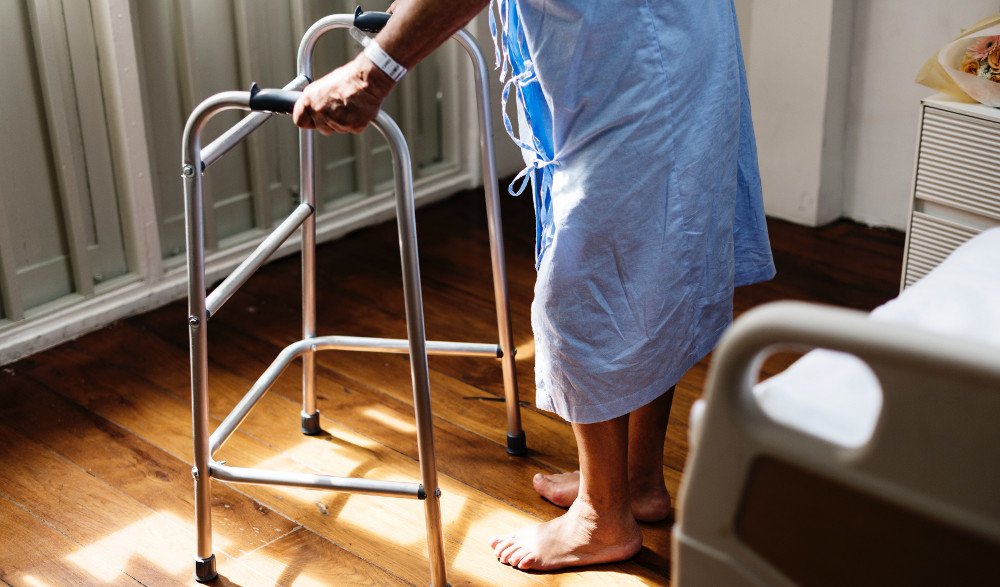Co-creating care home nursing education in the curriculum

In this post, Professor Tonks Fawcett and Dr. Julie Watson from Nursing Studies in the School of Health in Social Science, describe a PTAS-funded study, where students and staff co-created a nursing curriculum that foregrounds the importance of care home nursing education…
The true measure of any society can be found in how it treats its most vulnerable members – Mahatma Gandhi
Care homes are places where some of the most vulnerable people in our society live, but where many people fear they will spend their last days. Care homes play an essential role in providing 24-hour health and social care to frail, older people, many of whom have dementia. They support them to live well until the end of their life. In England and Wales, by 2040, it is projected that care homes will be the most common place to die (Bone et al, 2017).
On 16th January 2019, a headline in The Scotsman newspaper warned that care homes in Scotland are struggling to recruit staff. In the UK, there are 450,000 care home beds, three times the number of acute hospital beds. But, without staff, these beds cannot be sustained. The reasons for the struggle to recruit nurses in care homes are multifaceted, and requires a multifaceted response.
Ensuring that care home nursing is included in the education of student nurses is part of the response. Student nurses have the potential to offer solutions to the crisis in recruitment through the co-creation of the nursing curriculum. Student participation in curriculum development is reported to increase levels of individual and collective student responsibility for their learning, enhance student performance and engagement, and increase teachers’ satisfaction (Bovill, 2014; HEA, 2015).
Our project, funded through the Principle’s Teaching Award Scheme (PTAS), sought to develop this idea of co-creation of the curriculum. We began by conducting focus groups and interviews with 36 students from years one to four of the Bachelor of Nursing (BN) with Honours programme. Through this, we sought to understand attitudes to care home nursing, and engage students in thinking about care home nursing and its place in the wider health care economy.
This led students to think about care home nursing in a different way. It challenged some of their preconceived ideas, which had been strongly shaped not only by negative stories in the media, but also by negativity within the nursing profession itself. There was a unanimous view, even among those who would never consider care home nursing as a career, that it is an important aspect of nursing that they should learn about in their pre-registration education. The project highlighted the real deficit in learning about care home nursing that students currently attain. The students themselves expressed the need to hear more directly from nurses who work in care homes, and to understand the rewards and the challenges they experienced each day.
To counter the negative perceptions, students also identified a need to have more positive exposure to care home nursing. In response to this, we successfully secured an Innovative Initiative Grant (IIG) to co-create a film about care home nursing: ‘The good news behind the bad headlines’. Six students volunteered to make the film which involved attending the University ‘DIY Film School’.

Mojos (form L-R): Lauren Stables, Euan Humphreys, and Ellie Jollie.
Then, fully equipped as mobile journalists (Mojos), they visited three care homes to film three nurses and one GP talking about their work.

Mojos (from L-R): Georgia Duffy, Kelsey Roy, and Hannah Gill.
The film is currently being edited and will be used, not least, as a teaching resource. The new BN with Honours curriculum is now being developed ready for revalidation in 2020. Given the increasing needs of the ageing population, this PTAS study supports our goal that care home nursing will become a central part of the curriculum. In so doing, we hope that the nurses we educate will measure well in regard to how they treat the most vulnerable in our society.
You can read the final PTAS report here.
Written by Tonks Fawcett and Julie Watson for the Teaching Matters blog: http://www.teaching-matters-blog.ed.ac.uk/co-creating-care-home-nursing-education-in-the-curriculum/
Refrences
Bone, A.E., Gomes, B. Etkind, et al (2017). What is the impact of population ageing on the future provision of end-of-life care? Population-based projections of place of death. Palliative Medicine DO1:1077/0269216317734435https
Bovill, C. (2014). An investigation of co-created curricula within higher education in the UK, Ireland and the USA. Innovations in Education and Teaching International, 51(1), 15 – 25. DOI: 10.1080/14703297.2013.770264
Higher Education Authority (2015). Student engagement through partnership in higher education.


